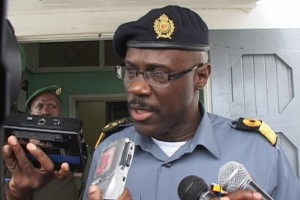
In light of the establishment of several new political parties, one of the two largest traditional parties, People’s National Congress Reform (PNCR) is claiming that it is not threatened by these new entries into the political scene.
The PNCR is the largest party in the five-member A Partnership for National Unity (APNU) alliance, which has managed to pull in the Alliance For Change (AFC), which it coalesced with in 2015 to get into office.
“You have to look at the fact that we’re a mass-based party. Some of the emerging parties are small-based parties, might be middle-class to upper-class parties and we believe that is a combat divider. We don’t see them as a major threat,” PNCR’s executive member retired Rear Admiral Gary Best said at the party’s weekly press conference on Friday.
He was at the time responding to questions on the implications these small parties can have on the traditional voting patterns in Guyana.
According to the PNCR executive, the formation of these new parties emerging in communities is not only necessary and good for local democracy but can also work in favour of the APNU in the future.
“The President [David Granger] has made it very clear – and that’s the leader of our party – that coalition politics is here to stay. So the extent to which other parties are being formed is the extent to which the David Granger-led party would be concerned but not from a negative perspective. But to see how broad the coalitions can be in the future. We don’t see them as a negative or combat divider. We see them as a combat multiplier once the platform they’re on is similar to the platform of the APNU/AFC. We see that as progress within the country,” Best stressed.
He went on to point out that these new parties entering the scene brings nothing new to the table that has not been raised before.
“There is no track record on these new groups that have emerged… Because when you look at the platform of the CI party [Citizenship Initiative which was launched on Thursday], it has nothing there that are[nt] already core principles of the PNCR. So they haven’t invented anything new,” the PNCR executive contended.
The PNCR-led APNU also comprises of the Working People’s Alliance (WPA), Justice For All Party (JFAP), National Front Alliance (NFA) and the Guyana Action Party (GAP).
Earlier this week it was revealed by APNU Leader, President David Granger, that the partnership is in talks with one of the new small parties – Liberty and Justice Party (LJP) which was founded by former Indigenous leader, Lenox Shuman.
The former Toshao of St Cuthbert’s Mission and former Vice Chair of the National Toshaos Council said he has approached the various political parties for discussions.
Granger told reporters on Wednesday that “We’re looking for common ground, we’re looking for areas of convergence… Mr Shuman has given me the assurance that, you know, there’re areas of convergence between the Liberty and Justice Party (LJP) and what he thinks the APNU stands for”.
Nevertheless, no actual agreement has been made by the two sides but they are expected to have another meeting sometime this month.
According to reports, Shuman said he will be doing a final analysis before making any decision on possibly coalescing with other parties.
However, the PNCR executive said at Friday’s press conference that the partnership is open to more members who share the same policy vision.



